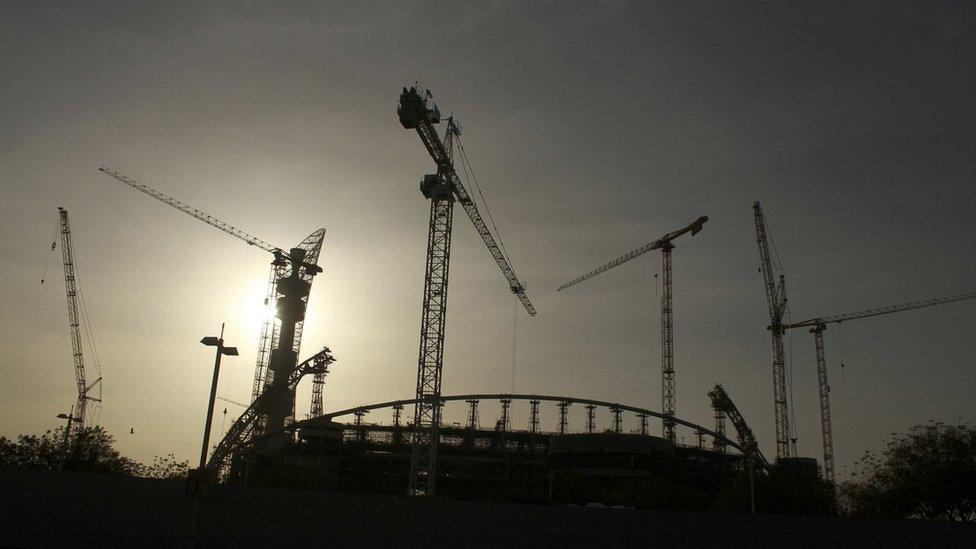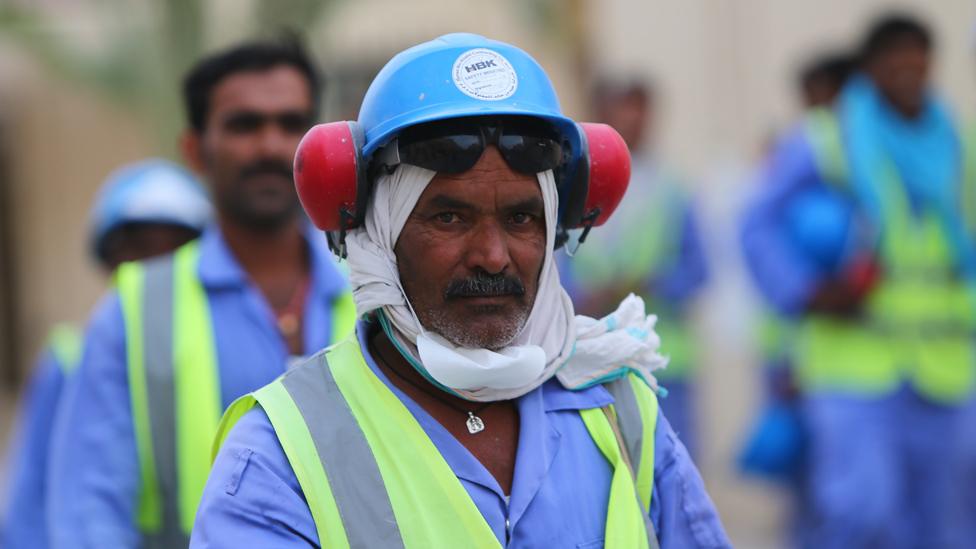Zac Cox death: Inquiry into Qatar 2022 World Cup stadium fall
- Published

Zac Cox fell 130ft while working at the Khalifa International Stadium
The authorities in Qatar are to hold an independent inquiry into the death of a British man who fell as he worked on a 2022 World Cup stadium in Doha.
Zac Cox died in January 2017 after falling 130ft from a gantry that collapsed.
He sustained brain injuries and a broken neck, Brighton and Hove Coroner's Court heard last year.
Mr Cox's family welcomed the investigation, which will be carried out by a British judge.
Mr Cox, 40, who was born in Johannesburg but later lived in Hove and London, was a specialist in construction work on tall buildings.
He fell from a platform he was helping to install at the Khalifa stadium, after lever hoists failed.
At the inquest, coroner Veronica Hamilton-Deeley blamed substandard equipment and chaotic working conditions.
The Qatari committee responsible for the 2022 World Cup has now agreed to hold an independent investigation.
Former High Court judge Sir Robert Akenhead will look into the decisions that led to Mr Cox's death.
Qatar's World Cup committee said the health and safety of its workers remained its utmost priority.

Qatar's World Cup committee said the health and safety of its workers remained its utmost priority
Mr Cox's sisters-in-law Ella Joseph and Hazel Mayes said the period since his death had been "extremely difficult" for his family and friends.
In a statement on behalf of the family, they said: "Following the UK Coroner's inquest into Zac's death... our family called for an independent investigation into the circumstances surrounding his death.
"We wanted to get to the truth about the decisions and circumstances that led to his death and to try and ensure that lessons are learnt that could help prevent other similar incidents from occurring in the future."
They added: "We welcome Sir Robert Akenhead's appointment and the commencement of the investigation.
"We also welcome the Supreme Committee's commitment to ensure everyone concerned co-operates fully with this independent investigation.
"Both the Supreme Committee and Zac's family share the view that Sir Robert Akenhead must be able to conduct his activity unhindered and with absolute autonomy."
- Published20 January 2017

- Published6 June 2015
